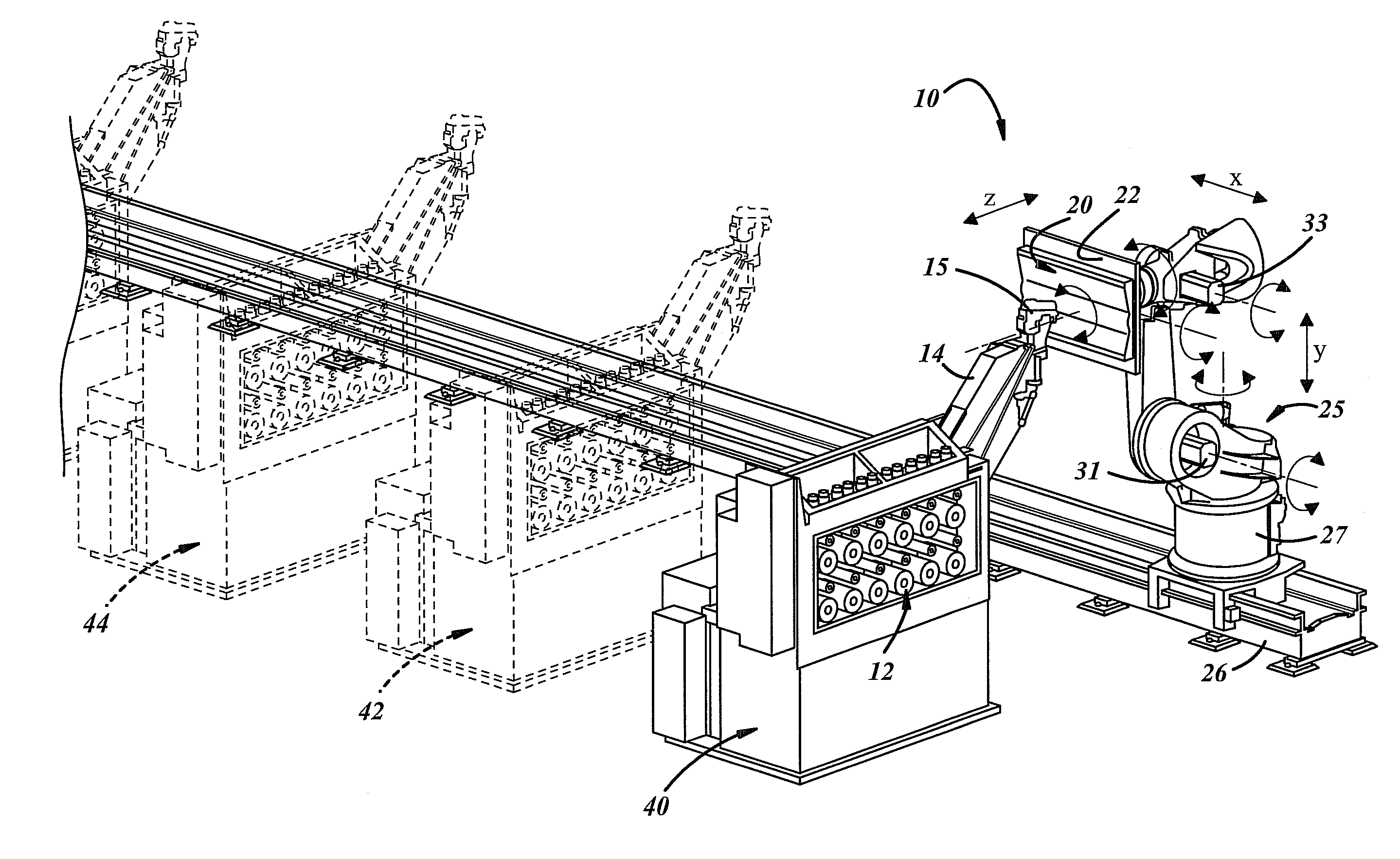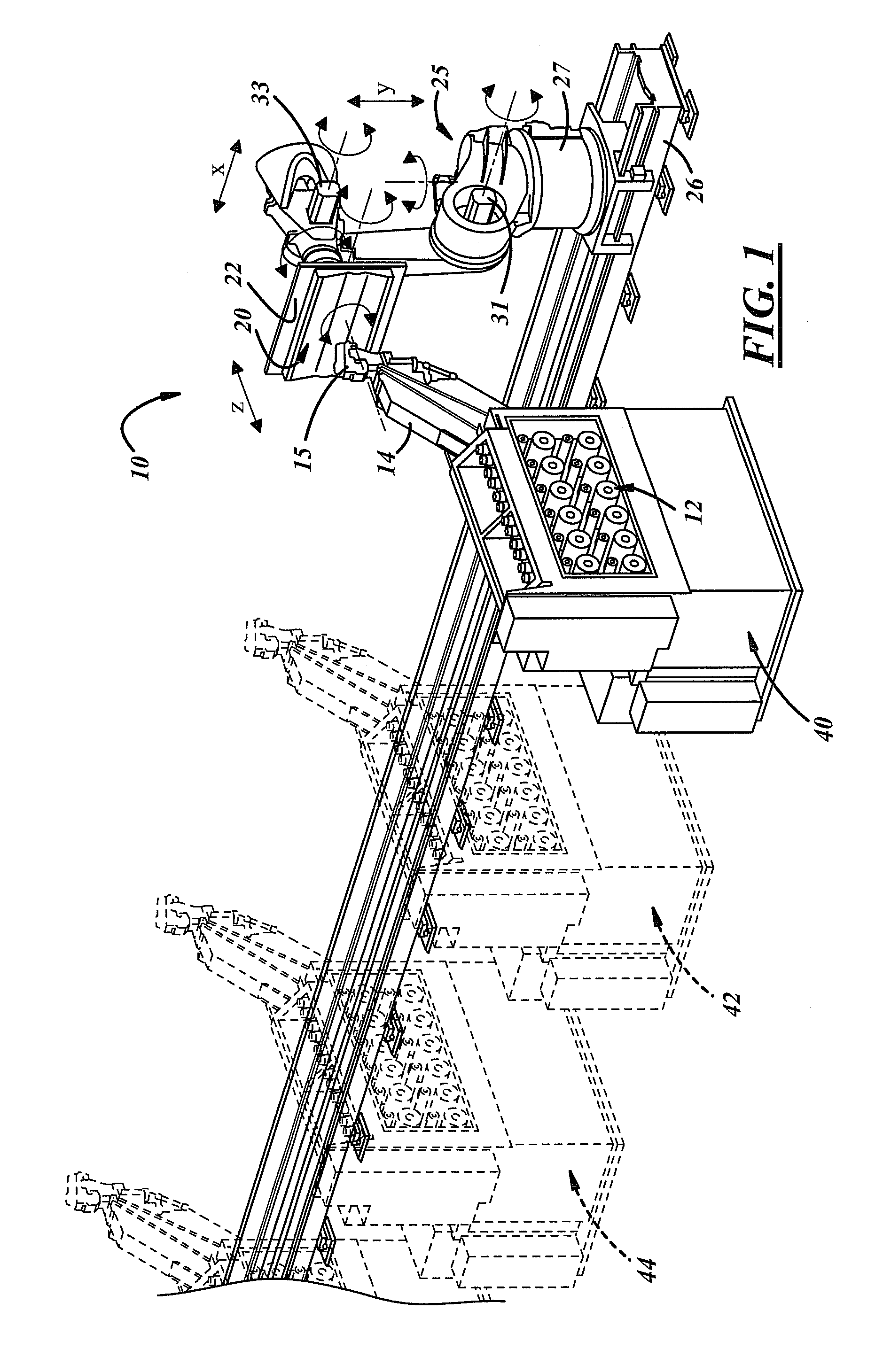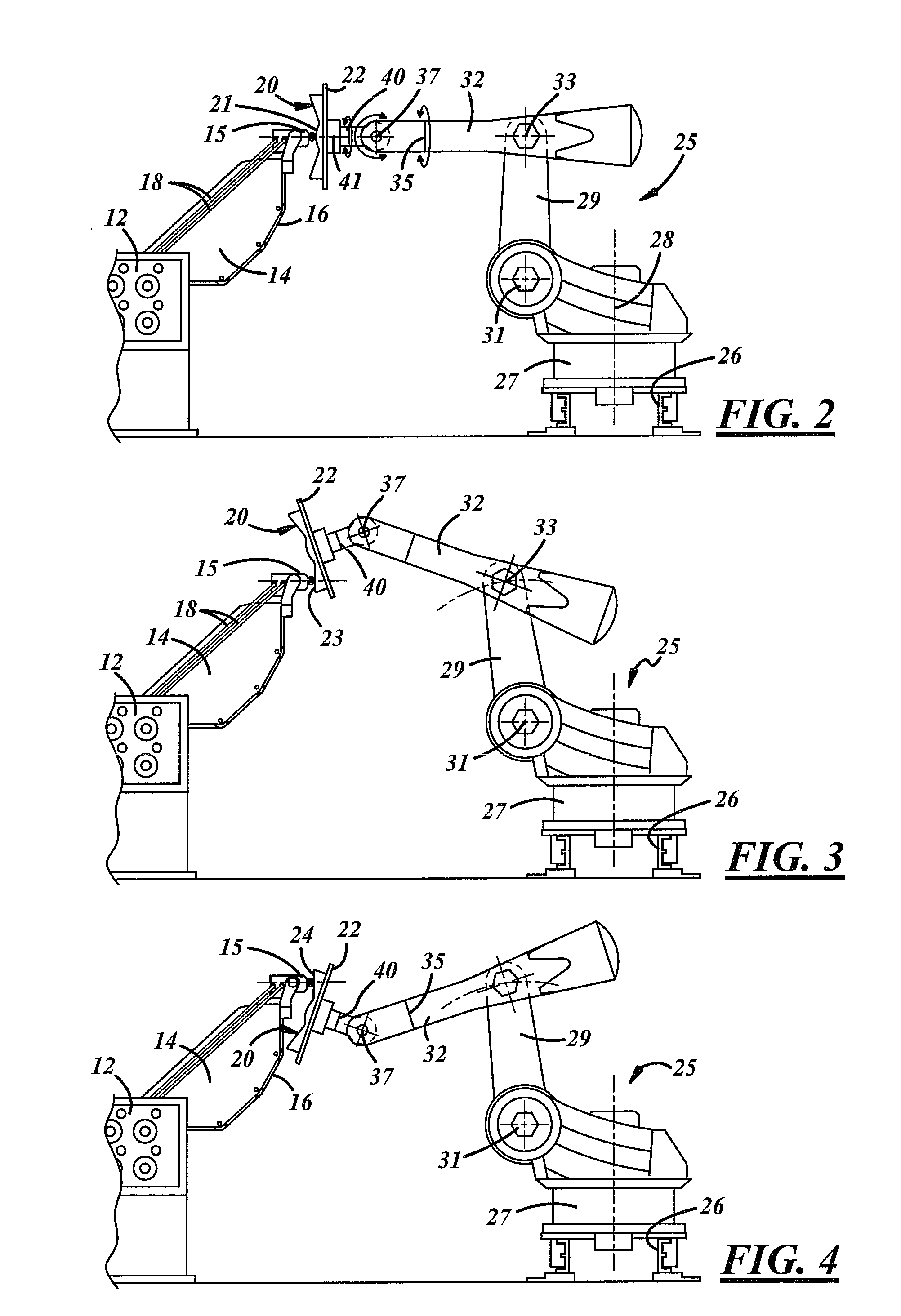Robotic based fiber placement cell with stationary dispensing head and creel
a fiber and robotic technology, applied in the direction of mechanical control devices, instruments, chemistry apparatus and processes, etc., can solve the problems of increasing weight, slowing down the motion of the arm and the head, and high cost of the mechanism used to guide and tension the fiber between the creel and the head, etc., to achieve the effect of simplifying the routing of utilities
- Summary
- Abstract
- Description
- Claims
- Application Information
AI Technical Summary
Benefits of technology
Problems solved by technology
Method used
Image
Examples
Embodiment Construction
[0011]Turning now to the drawing figures, FIG. 1 shows a robotic fiber placement cell with a stationary dispensing head and creel generally designated by the reference numeral 10. The cell comprises a creel 12 that is mounted in a fixed position on the floor. A fixed arm 14 is mounted next to the creel 12, and a fiber placement dispensing head 15 is mounted on the end of the arm 14 that is remote from the creel. Although not shown, an operator's platform may be positioned adjacent to the creel 12, and a control panel for operating and monitoring the fiber placement cell may be located on the operator's platform.
[0012]The creel 12 utilizes standard spool mounting and tensioning components (not shown) to control the flow of the fiber from the creel to the head 15. As best seen in FIGS. 2-4, tow material 16 is routed from the creel 12 to the dispensing head 15 in a nearly straight line along the length of the arm 14, without twisting or changing direction or length as is normally requi...
PUM
| Property | Measurement | Unit |
|---|---|---|
| Length | aaaaa | aaaaa |
Abstract
Description
Claims
Application Information
 Login to View More
Login to View More - R&D
- Intellectual Property
- Life Sciences
- Materials
- Tech Scout
- Unparalleled Data Quality
- Higher Quality Content
- 60% Fewer Hallucinations
Browse by: Latest US Patents, China's latest patents, Technical Efficacy Thesaurus, Application Domain, Technology Topic, Popular Technical Reports.
© 2025 PatSnap. All rights reserved.Legal|Privacy policy|Modern Slavery Act Transparency Statement|Sitemap|About US| Contact US: help@patsnap.com



